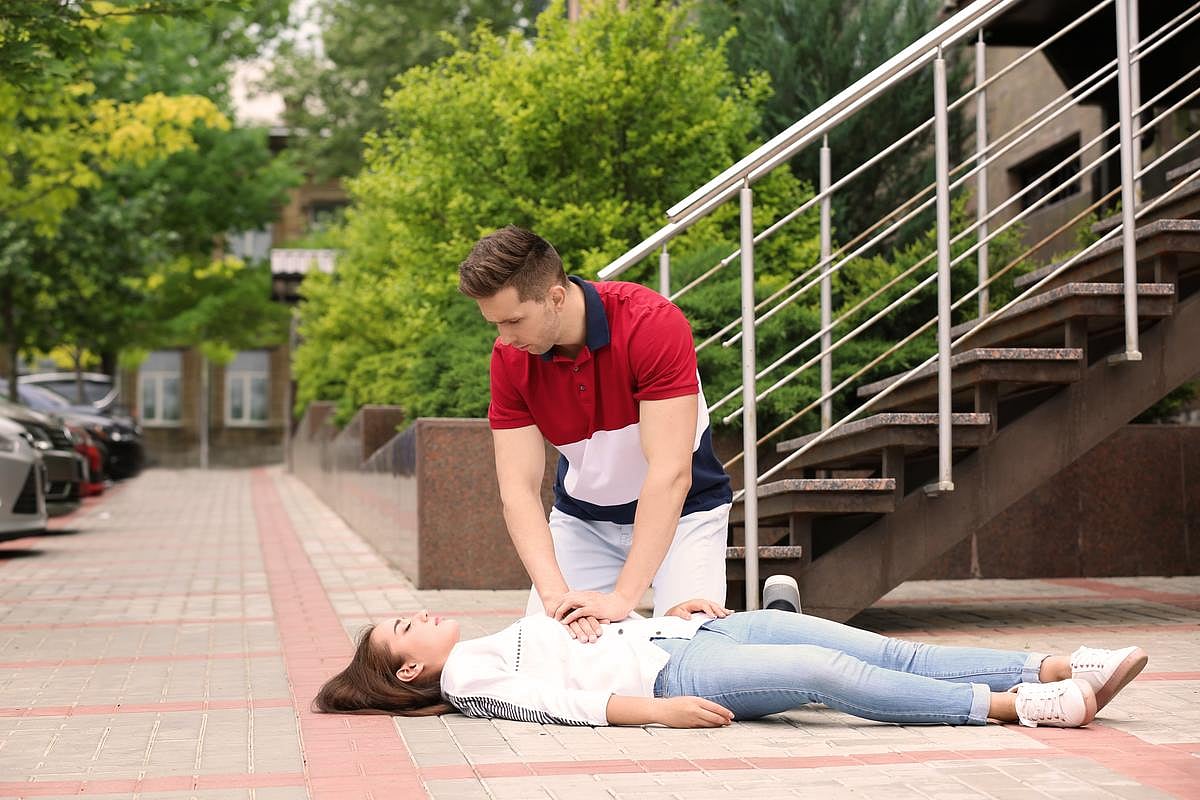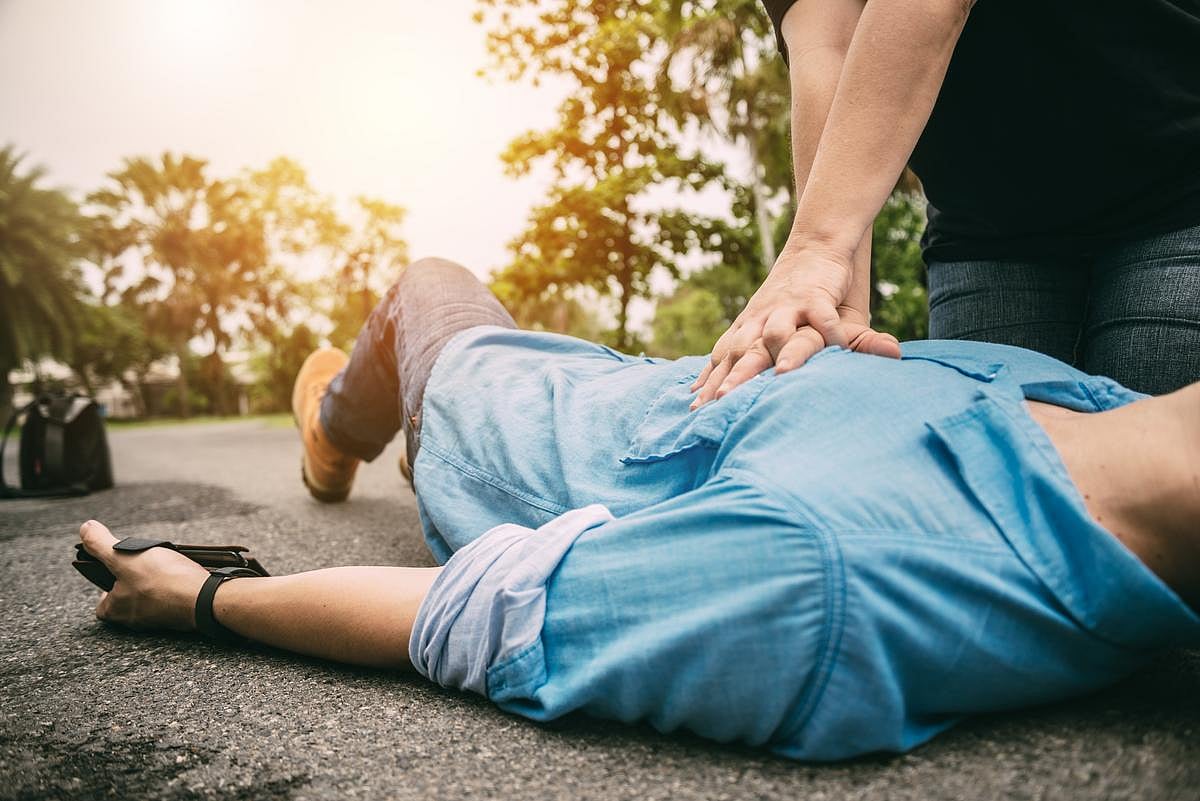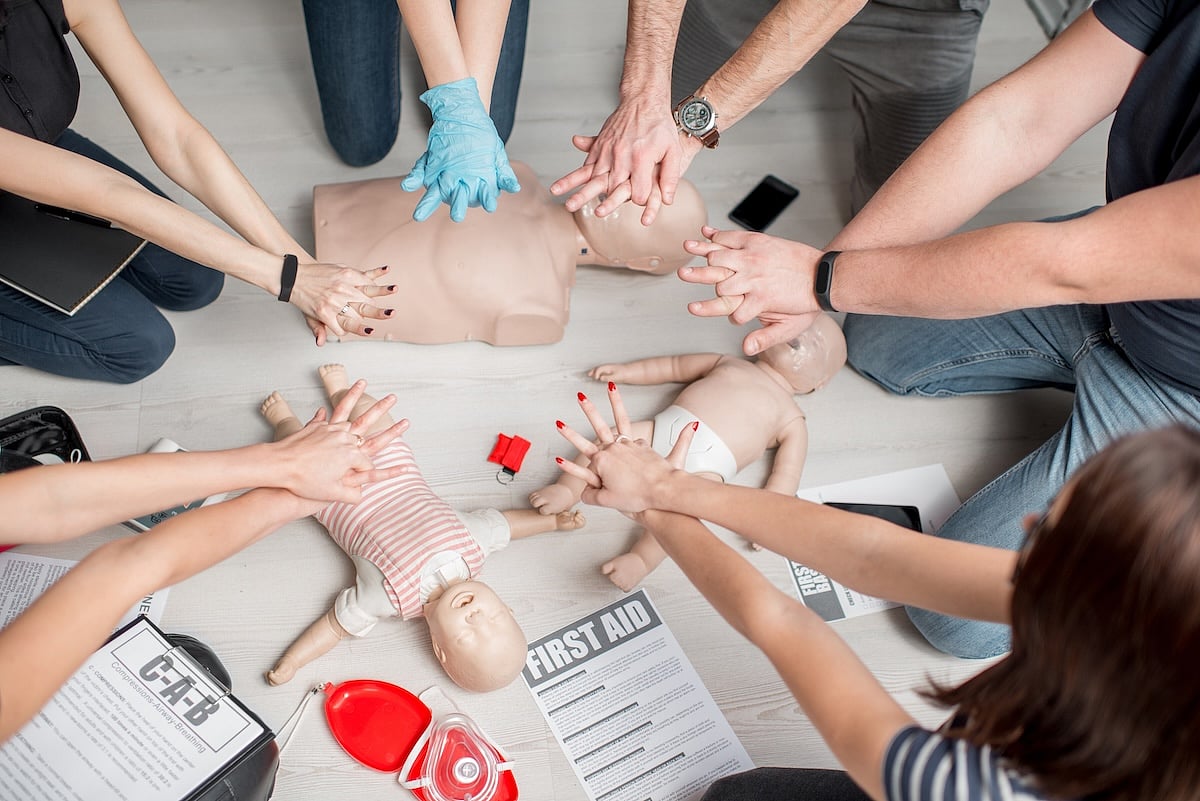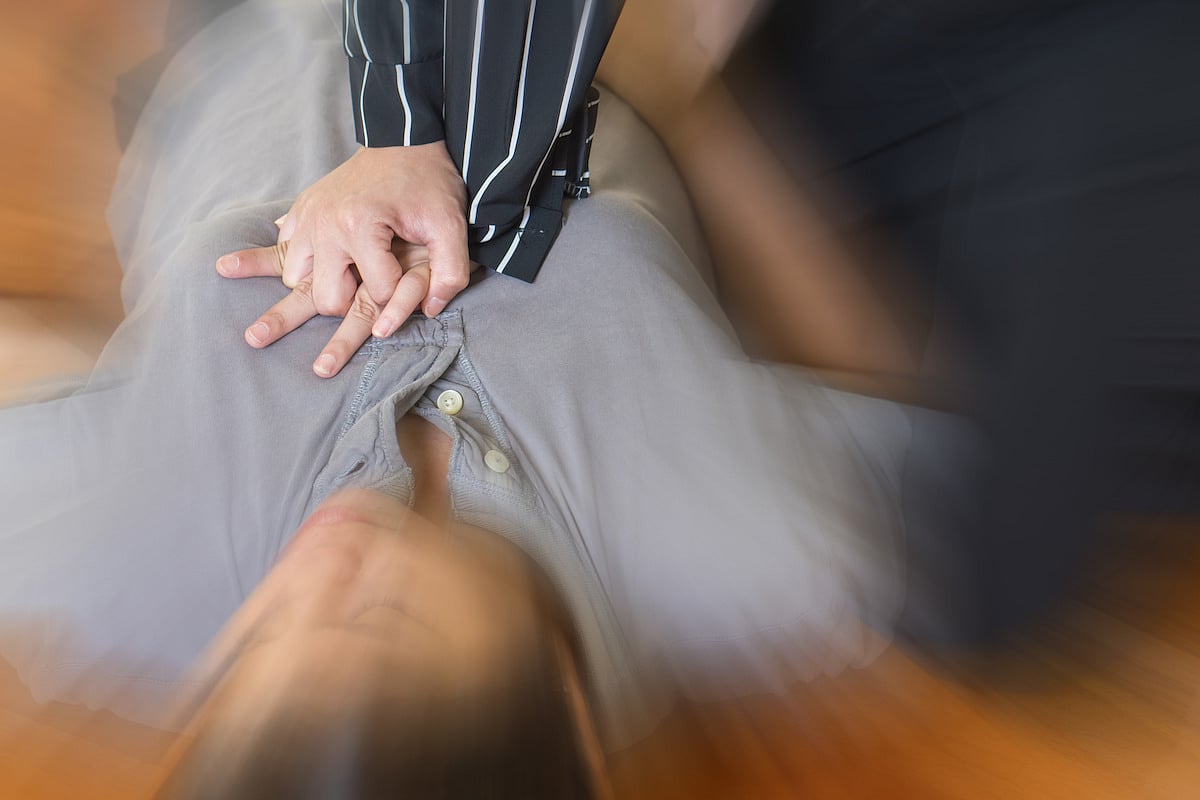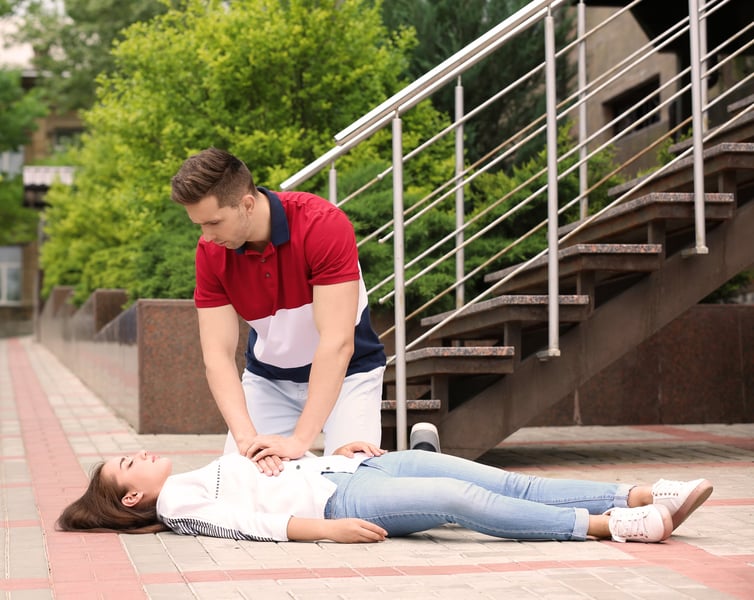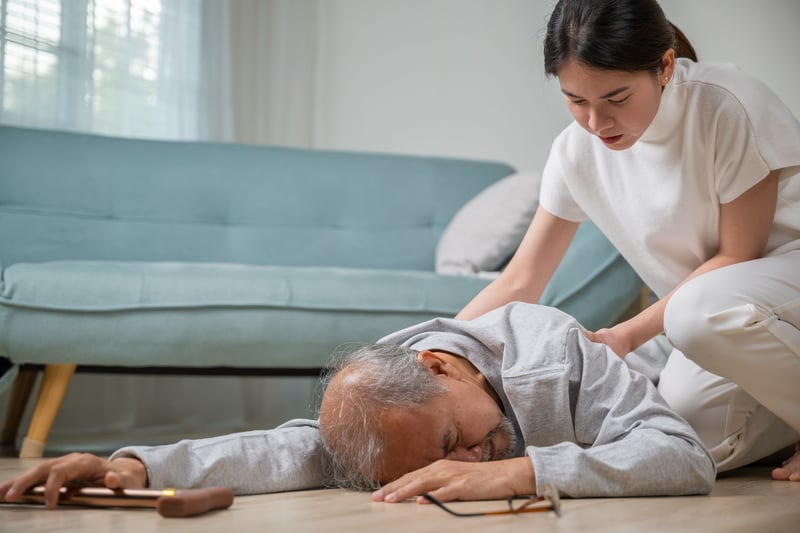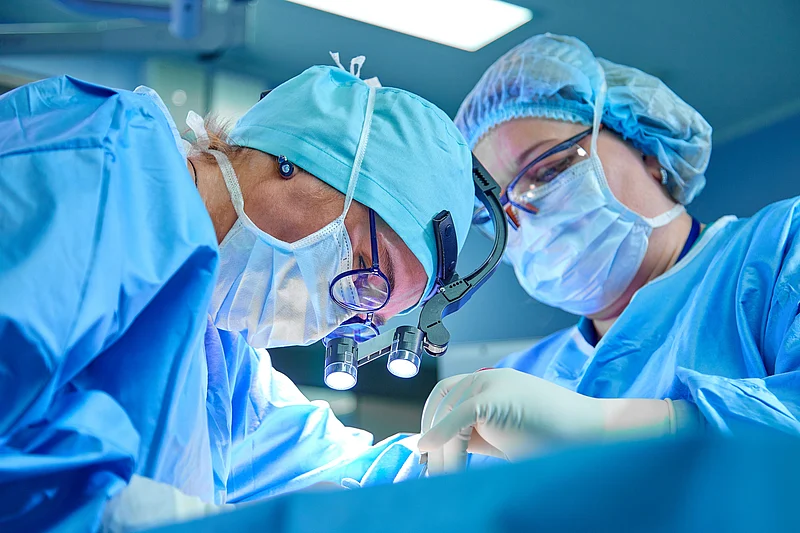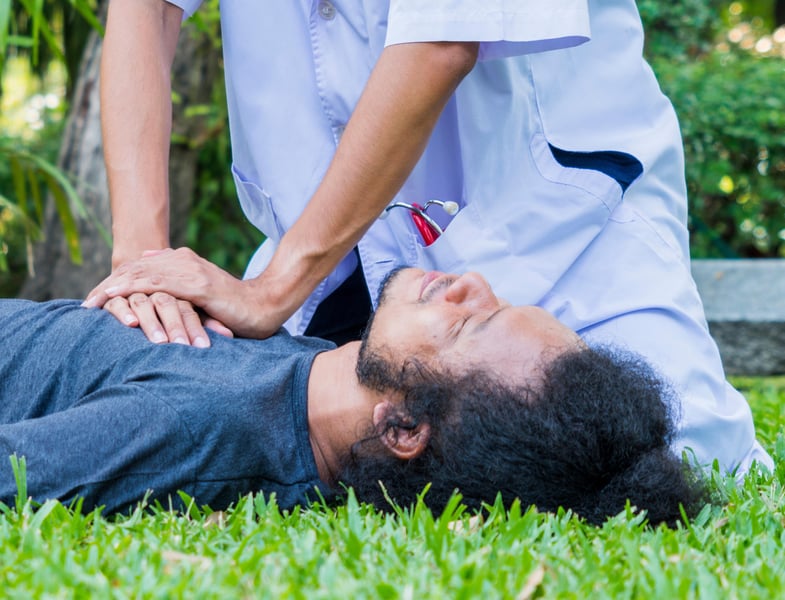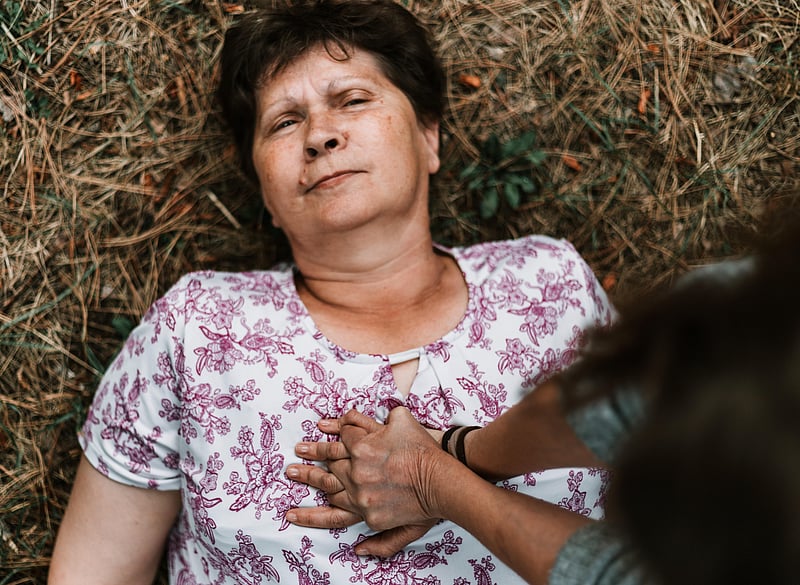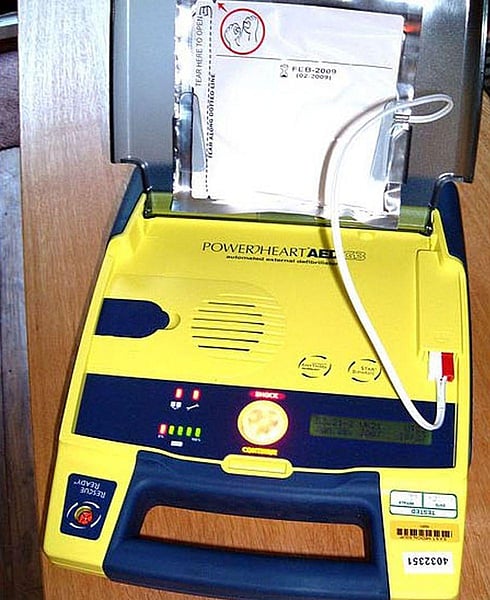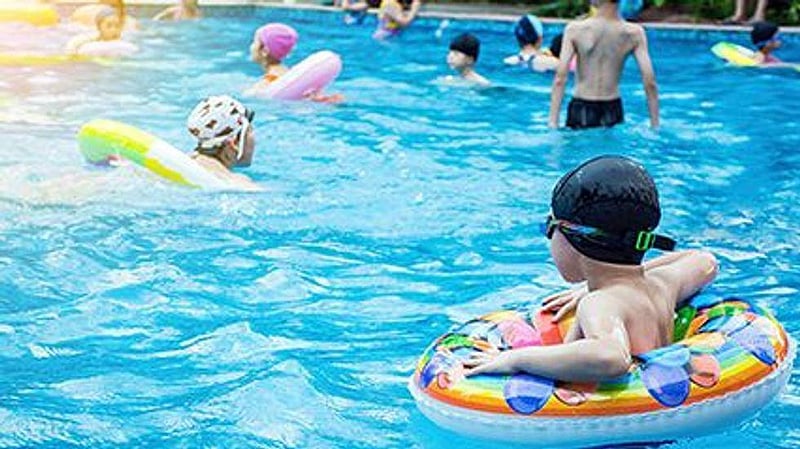Get Healthy!
Results for search "CPR".
Health News Results - 29
How do you perform CPR properly? Who’s most likely to need CPR? Where are they most likely to collapse?
Don’t turn to scripted TV shows for answers to these questions, a new study warns.
Television depictions of cardiac arrest...
- Dennis Thompson HealthDay Reporter
- |
- January 13, 2026
- |
- Full Page
Cardiopulmonary resuscitation (CPR) is a vital skill anyone can perform. It is administered to an unconscious person who is not breathing normally.
More than 70% of out-of-hospital cardiac arrests happen at home, according to the 2024 Cardiac Arrest Registry to Enhance Survival (CARES) Annual Report, and nationwide, 41.7% of patients recei...
- Elizabeth Froelich, BS, Paramedic, Lead Instructor HealthDay Reporter
- |
- January 9, 2026
- |
- Full Page
Thousands of U.S. kids each year collapse from cardiac arrest and need CPR to save their lives.
But CPR must start for them in half the time required for adults, according to results that will be presented at the American Heart Association annual meeting in New Orleans on Nov. 9.
The time window to initiate successful CPR might be half that of the window for adults: 5 minutes versus...
- Dennis Thompson HealthDay Reporter
- |
- November 4, 2025
- |
- Full Page
Want to be ready to respond if an adult starts choking on their food, or a child on some object they’ve swallowed?
Updated guidelines are available that let people know just what to do if an infant, child or adult is choking — and it’s pretty much the same thing for everyone.
Rescuers should alternate five back blows with five abdominal thrusts until the object is ...
- Dennis Thompson HealthDay Reporter
- |
- October 27, 2025
- |
- Full Page
As humans begin to colonize space, it’s inevitable that some will suffer a cardiac arrest.
Space CPR conducted in weightlessness will be crucial to save their lives – and researchers say they’ve now come up with a better metho...
- Dennis Thompson HealthDay Reporter
- |
- August 28, 2025
- |
- Full Page
When a person collapses from cardiac arrest, many on the scene first try to prevent them from swallowing their tongue, believing it to be necessary in helping them to breathe.
Experts call that a potentially fatal misconception that could delay lifesaving CPR.
New Israeli research looking at 45 cases of collapsed athletes finds the scenario happens all too often.
"Our s...
- HealthDay Reporter
- Ernie Mundell
- |
- July 30, 2025
- |
- Full Page
It doesn’t matter if CPR is performed by a doctor, a paramedic or an unskilled, unpracticed passerby -- when performed promptly, it will increase a person’s odds of survival, a new study says.
The speed of CPR initiation is crucial to survival and better outcomes related to cardiac arrest, r...
- HealthDay Reporter
- Dennis Thompson
- |
- March 18, 2025
- |
- Full Page
You encounter someone collapsed on the sidewalk and quickly dial 911.
Whether or not the operator instructs you on how to deliver cardiopulmonary resuscitation (CPR) could mean life or death, especially if the victim is female, new research shows.
In a study involving nearly 2,400 emergency calls for cardiac arrest in North Carolina, rates for bystander CPR rose dramatically w...
- HealthDay Reporter
- Ernie Mundell
- |
- November 11, 2024
- |
- Full Page
Whites are three times more likely to survive a cardiac arrest after receiving bystander CPR than Black adults are, a new study has found.
Likewise, men are twice as likely to survive after bystander CPR than women, researchers found.
“CPR saves lives -- that, we know,†said researcher Dr. Paula Einhorn, a ...
- HealthDay Reporter
- Dennis Thompson
- |
- August 7, 2024
- |
- Full Page
Only about half of Americans feel prepared to help someone during a medical emergency, a new poll finds.
Only 51% of Americans think they would be able to perform hands-only CPR to help someone who's collapsed. Similarly, only 49% feel they could step in and staunch serious bleeding, while 56% said they can help someone who's choking to death.
"Before emergency responders arrive, it...
- HealthDay Reporter
- Dennis Thompson
- |
- May 22, 2024
- |
- Full Page
Black and Hispanic Americans are gaining a better understanding of CPR, with a growing number expressing confidence they could use it to save a life, a new survey finds.
About 44% of Black Americans now feel confident performing conventional CPR, up from 30% just three years ago, the American Heart Association (AHA)
Hispanic folks with chronic kidney disease should have early heart health screenings, new research suggests, because they're at high risk for sudden cardiac arrest.
A team from the Smidt Heart Institute at Cedars-Sinai in Los Angeles discovered this while working to learn about possible causes for the heart unexpectedly stopping.
"Because people who experience sudden cardiac arrest ...
- HealthDay Reporter
- Cara Murez
- |
- October 12, 2023
- |
- Full Page
CPR could save your life if you suffer cardiac arrest in a public place, but you're less likely to receive it if you're a woman, a new study finds.
The findings were presented Monday at the European Emergency Medicine Congress, in Barcelona.
"In an emergency when someone is unconscious and not breathing properly, in addition to calling an ambulance, bystanders should give CPR. This ...
- HealthDay Reporter
- Cara Murez
- |
- September 18, 2023
- |
- Full Page
People have long talked about having near-death experiences in which they felt they were looking down on themselves while others tried to save them.
Now, researchers have documented some of those experiences. In a study published online recently in the journal Resuscitation,...
- HealthDay Reporter
- Cara Murez
- |
- September 14, 2023
- |
- Full Page
If you need quick directions on performing cardiopulmonary resuscitation (CPR) in an emergency, don't rely on Alexa, Siri or another voice assistant.
A new study finds the directions provided by these AI (artificial intelligence) helpers are inconsistent and lack relevance.
"Our findings suggest that bystanders should call emergency services rather than relying on a voice assis...
- HealthDay Reporter
- Cara Murez
- |
- August 28, 2023
- |
- Full Page
Bystander aid using CPR and a defibrillator can be critically important for saving lives when someone has a cardiac arrest -- even when an ambulance arrives quickly, say researchers.
A new study finds that when a bystander uses a defibrillator, on top of CPR, on someone who has had a cardiac arrest, that patient's 30-day survival improves, even when an ambulance takes just two minutes to ...
- HealthDay Reporter
- Cara Murez
- |
- August 24, 2023
- |
- Full Page
Asian adults in the United States who suffer cardiac arrest are less likely to survive than white adults, even when given bystander CPR, a new study finds.
Asian adults have similar rates of bystander CPR after a cardiac arrest, but are 8% less likely to survive to hospital discharge compared with white adults.
They are also 15% less likely to have favorable mental outcomes, accor...
- HealthDay Reporter
- Steven Reinberg
- |
- July 27, 2023
- |
- Full Page
When frail patients go into cardiac arrest and need cardiopulmonary resuscitation (CPR) during surgery, they're more likely to die than those who are stronger, a new study shows.
Researchers from Brigham and Women's Hospital in Boston studied the impact of frailty on survival in these cases where previously frailty was not considered as a factor.
"CPR should not be considered futil...
- HealthDay Reporter
- Cara Murez
- |
- July 6, 2023
- |
- Full Page
If you're old enough to dial 911, you're old enough to be a lifesaver.
Building lifesaving skills can start as young as age 4 and be expanded over the years, the American Heart Association and others advise in a new scientific statement.
Children can be adept at t...
- HealthDay Reporter
- Cara Murez
- |
- May 18, 2023
- |
- Full Page
Buffalo Bills safety Damar Hamlin is issuing a CPR challenge to promote use of the emergency procedure that saved his life on national television.
Hamlin, 24, suffered cardiac arrest during a Jan. 2 game against the Cincinnati Bengals, moments after being tackled hard in the chest.
A mo...
- HealthDay Reporter
- Dennis Thompson
- |
- February 2, 2023
- |
- Full Page
People have long talked about having near-death experiences in which they felt they were looking down on themselves while others tried to save them.
Now researchers have documented some of those experiences. In a new study, investigators found that about 20% of patients recalled lucid experiences of death that occurred while they were seemingly unconscious and dying.
"These lucid e...
- HealthDay Reporter
- Cara Murez
- |
- November 7, 2022
- |
- Full Page
It might seem like guns would be the biggest safety concern for hunters, but there's another real danger.
The possibility of having a heart attack or stroke while hunting is higher with the combination of physical exertion, excitement and cold air constricting blood vessels, experts say.
- HealthDay Reporter
- Cara Murez
- |
- November 1, 2022
- |
- Full Page
When someone collapses in front of witnesses, the chances of receiving potentially lifesaving CPR may partly depend on the color of their skin, a new study suggests.
Researchers found that when Black and Hispanic Americans suffer cardiac arrest, they are up to 37% less likely than white people to receive bystander CPR in public places and at home.
The reasons for the disparity are ...
- HealthDay Reporter
- Amy Norton
- |
- October 27, 2022
- |
- Full Page
You have a much better chance of surviving a cardiac arrest if non-medical first responders immediately begin CPR or use an automated external defibrillator (AED), according to a new study.
Researchers also found that firefighters and police who are first to the scene are often underu...
- HealthDay Reporter
- Robert Preidt
- |
- April 1, 2022
- |
- Full Page
If you collapse in a public place from a cardiac arrest, your chances of receiving lifesaving cardiopulmonary resuscitation (CPR) are substantially better if you're white instead of Black or Hispanic, a new study finds.
Black and Hispanic individuals who have out-of-hospital
Adult staff in schools are more likely than students to suffer sudden cardiac arrest, but automated external defibrillators (AEDs) are often used and improve the chances of survival, a new study finds.
AEDs are portable devices that deliver an electric shock to try and restart the heart. If appropriate action isn't taken immediately, cardiac arrest is often fatal.
"Most research on ...
- HealthDay Reporter
- Robert Preidt
- |
- October 15, 2021
- |
- Full Page
A drowning child has a much lower risk of severe disability or death if a bystander steps in, even without cardiopulmonary resuscitation (CPR), new research finds.
"Bystanders play a critical role in preventing poor outcomes in childhood drowning by instituting safe, early and effective rescue and resuscitation of pediatric drowning victims," said author Dr. Rohit Shenoi, an attending phy...
- HealthDay Reporter
- Robert Preidt
- |
- October 12, 2021
- |
- Full Page
If you have a cardiac arrest, your odds of survival are best in an airport or airplane, a new study finds.
That's because automated external defibrillators (AEDs) are readily available and so are people ready to help, researchers explained.
"Our findings emphasize that cardiac arrest in travelers is survivable and that early resuscitation interventions matter," said lead researcher ...
- HealthDay Reporter
- Steven Reinberg
- |
- September 20, 2021
- |
- Full Page


